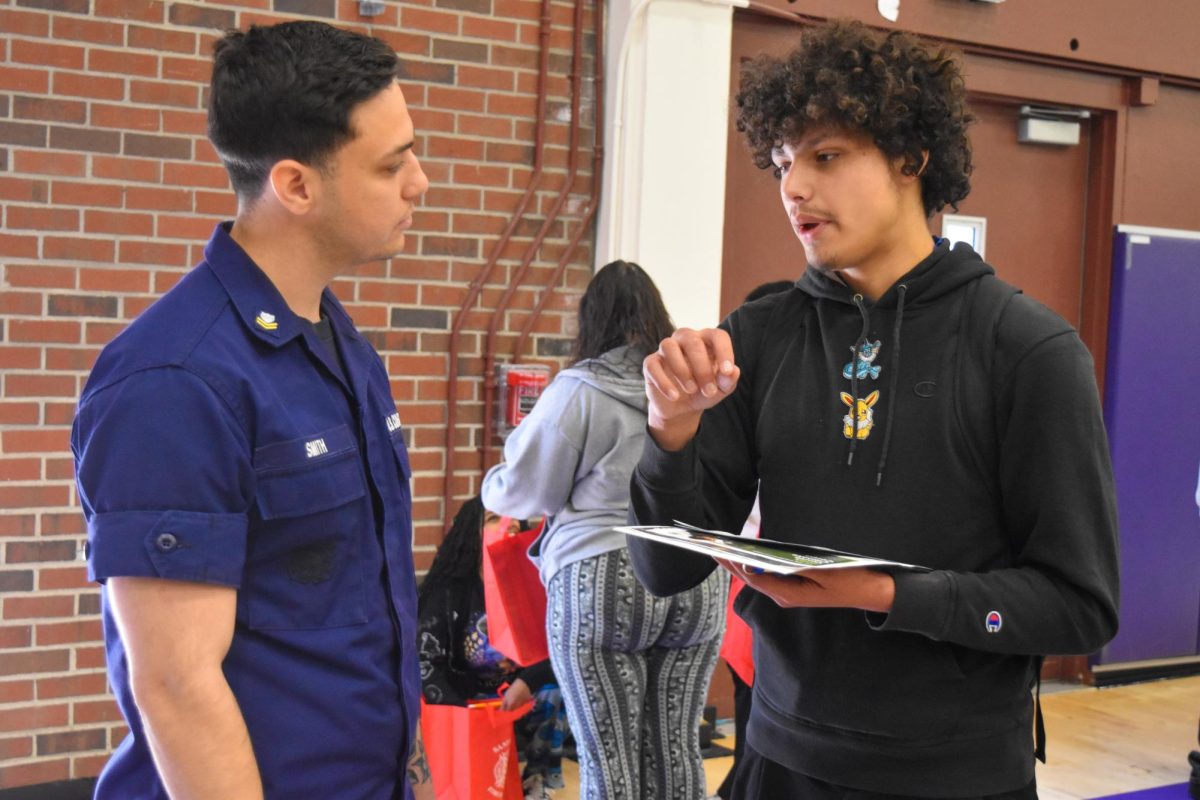On Tuesday, Sept. 26 during 7th period, assistant principal Michael Martinez walked into Martin Jennings’s Algebra 2/Trig class. Martinez explained to students how their math class would be discontinued due to schoolwide math enrollment numbers falling below projections and that all of the students in the class would have schedule changes.
According to Martinez, the school projects a particular number of sections, or classes, that it will need for the upcoming year based on course selection. This year, however, the number of students coming into MVHS as a whole was less than predicted, and several students dropped math classes.
“When you have 55 [fewer] kids, plus a lot of kids dropping classes, it ended up looking like the math department was overstaffed,” Martinez said. “So at that point, we had to cut a section.”
Martinez explains how enrollment can be unpredictable because there are a number of reasons for which less students would come into MVHS than expected.
“The reality is that some of those kids went to to private school, some of those kids were impacted by DACA or had Visa issues so their parents may have had to move back to the country where they came from,” Martinez said. “It’s really challenging, and we’re doing the best we can with the numbers that we’re given and the projections that we’re given, but [the administration] can’t really account for a family finding out one day that they have to move away, which is horrible, or deciding to enroll their child in private school so [a student is] not coming to MVHS anymore.”
Students who have dropped math classes made the administration consider closing a section of math. Sophomore Veronica Hui, who was in Jennings’s seventh period class, believes that the large number of drops can be traced back to MVHS’ culture.
“[Some of the freshmen] probably overestimated themselves,” Hui said. “I don’t think they take [class difficulty] and [their ability to handle a class] into consideration. They only think about how other people will view them if they take Algebra 2/Trigonometry over Algebra 2.”
Freshman Riya Chatterjee, who was in Jennings’ seventh period class, agrees, believing that students most likely were not familiar with their capabilities of handling course load.
“They thought that they were prepared,” Chatterjee said. “But maybe they felt pressured by their other subjects, too much work, and then they weren’t able to really focus on doing well.”
The administration specifically chose to close Jennings’s seventh period class for a different reason. At the beginning of the year, the administration created an extra section for Jennings to teach. He was teaching 120 percent of the number of classes that a normal teacher would teach, so the administration chose to close one of his Algebra 2/Trigonometry classes.

For the students in Jennings’s seventh period class, the change was a surprise. Like several of her peers, Chatterjee has concerns about having her schedule changed.
“Adjusting to a new teacher is definitely difficult because the way that the new teacher is going to teach is different,” Chatterjee said. “If they’re ahead, you have to catch up and work more.”
Both Chatterjee and Hui agree that acclimatizing to a new learning environment is a challenge. However, this sudden change also impacts Jennings.
“[Closing the class] means that my income lessens by about 17 percent,” Jennings said. “It means that the other Algebra 2/Trigonometry teachers’ classes grow by at least 10 percent, because the administration has to send out those students to different existing classes and teachers.”
Closing a class affects the entire MVHS community. However, Chatterjee and Hui feel like the transition would have been easier for everyone if the students had been notified earlier.
“It was the seventh week of school so we had all gotten used to our teachers,” Hui said. “It could change your other classes too, so you have to fit into a completely new environment with different teachers and new people in your class, and that’s something that could have been done earlier.”
To address student concerns, Martinez explains how the decision to close the class was made. According to Jennings and Martinez, the administration has to follow a contract when designating sections of classes based on enrollment numbers, and the enrollment in math only recently became small enough to justify closing a section.
“As drops came in, I met with the math department lead [Scott DeRuiter] pretty regularly every week to inform him about what was happening with the data trends,” Martinez said. “And then the trigger was dropped. The kids that didn’t show up were already gone and out, but at this point it’s a matter of the kids that are dropping math, and that happened to be a pretty significant number.”
While the enrollment numbers in math had been declining for a while, once the number of students who dropped a math class reached a certain threshold, the timeline of the administration’s decisions proceeded rapidly. According to Jennings, the unofficial decision to close his class was made on Friday, Sept. 22, and the official decision was made on Monday Sept. 25. Martinez acknowledges that the change can be tough for students, but explains how closing the math section would be better than some other alternatives.
“We could build the schedule a little bit tighter, but what that would look like [is students] starting classes with 40 kids in it,” Martinez said. “That’s a lot of students in the class. I would find it hard to concentrate and learn with 40 kids in class. We try to keep class size ratios where they’re manageable for [students].”
Martinez understands that the students’ schedule change may cause an inconvenience for many and emphasizes that the administration is trying to help students as much as possible.
“I went down to talk to a class,” Martinez said. “And within a few days, we had all of the admin working on schedules and making sure that we had three goals in mind: that we minimize the amount of moves as much as possible in the schedule, we try to keep the structure of the schedule as intact as possible and we try to keep kids with the same teachers as much as possible.”
Martinez emphasizes that while the situation is inconvenient and possibly shocking to some, it does not have extreme consequences or side effects.
“Everybody’s doing the best they can,” Martinez said. “It’s not an easy thing, but one thing I’ve been trying to tell students is, if this is the worst thing that’s happen to you this year, that you’ve had to have just one teacher change, you’re doing pretty good.”
Additional Reporting by Om Khandekar















